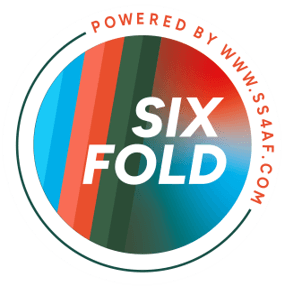Vilnius will host a three-day study visit that blends hands-on innovation with strategic policy dialogue—an agenda designed to turn promising concepts into investable collaborations. Organised by AgriFood Lithuania, the programme connects SMEs, researchers, Living Labs and public authorities around a shared European ambition: delivering a sustainable, resilient and competitive agri-food system. The visit is timed to harness the energy of a transnational hackathon, the flagship AgriFood Forum, and an inside look at Lithuania’s leading research infrastructure.
Day 1 — Connecting solutions with users at the ENACT Hackathon (Tuesday, 25 November)
We start where ideas meet adoption: the ENACT Transnational Hackathon in Vilnius. Over three days, social-economy actors in agri-food work in mixed teams to define problems sharply, prototype with purpose and test with end-users. SIXFOLD experts will contribute as mentors and jury members, helping teams translate user insight into feasible roadmaps that can travel across borders.
By mentoring and serving on the jury, we help SMEs translate user needs into clear problem statements, early metrics, and testable roadmaps aligned with Living Lab practice. The format quickly reveals where Lithuanian and EU labs, datasets, and RTO expertise can de-risk development, while clarifying partners, IP, and timelines. It also builds a cross-border pipeline of concepts with real transferability. Outcome: a shortlist of user-validated ideas—with owners and first test plans—ready to enter Living Lab validation.
Day 2 — Setting the agenda at AgriFood Forum 2025 (Wednesday, 26 November)
The conversation elevates at AgriFood Forum 2025, hosted for the first time at the Palace of the Grand Dukes of Lithuania—a fitting stage for Europe’s transition to a future-fit food system. Policymakers, business leaders, scientists and innovators convene to align on directions of innovation, policy and investment that can unlock quality jobs, food security and a socially just transition. The Forum underscores the EU approach: mission-oriented, evidence-based and delivered through public-private partnerships.
In the afternoon, a dedicated SIXFOLD programme brings that strategic vision down to implementation. We introduce the project, explore how to attract investment into Living Labs and their development in Lithuania’s R&D landscape, and facilitate a co-creation workshop—Empathise & Define—to sharpen challenge statements with real user journeys. The session closes with a plenary discussion to converge on priorities that partners can carry forward after the visit. The format mirrors a style already proven across SIXFOLD activities: design-thinking methods anchored in cross-stakeholder collaboration and practical next steps.
Day 3 — From lab to market at FTMC (Thursday, 27 November)
The final day takes us inside Lithuania’s Research Institute Center for Physical Sciences and Technology (FTMC)—the country’s largest scientific research institution—where policy words meet the machinery of delivery. Participants will see how FTMC’s capabilities translate into B2B services for prototyping, testing and upscaling, across key enabling technologies from photonics to advanced materials. A focused Q&A will demystify engagement models, IP and timelines, while highlighting routes for SMEs to accelerate validation with accredited services and technology-transfer support.
The afternoon returns to co-creation with Ideate & Test. Teams iterate solution concepts developed on Day 2, showcase their problem-solving canvases, and subject them to constructive critique. We then converge on the most relevant and feasible ideas, confirm owners, and set near-term milestones for testing in Living Lab settings. The objective is simple: move from discussion to delivery with clarity on responsibilities and evidence requirements.
Why this visit matters
Across Europe, agri-food innovation succeeds when excellent science, entrepreneurial drive and public policy work in concert. By pairing a transnational hackathon with a high-level forum and a laboratory visit, Vilnius offers a compact pathway from policy signals to tested solutions. The study visit is curated to:
- empower SMEs with user-validated roadmaps and access to research infrastructure;
- strengthen Living Labs as engines for place-based innovation and investment;
- foster cross-border learning so that what works in one region can be adapted in another.
This approach aligns with ongoing European efforts to back collaboration that is open, responsible and impact-oriented—an ethos reflected in SIXFOLD’s previous study-visit formats and in the project’s broader contribution to an EU innovation ecosystem rooted in evidence and trust.
What participants can expect to take home
By the close of Day 3, we anticipate (i) prioritised challenge statements backed by user insight, (ii) a short-list of solution concepts with early test plans, and (iii) a practical outline for collaboration and investment around Lithuanian Living Labs. These are not shelf documents; they are working agreements to guide the next tranche of pilots, data-sharing and fundraising.





